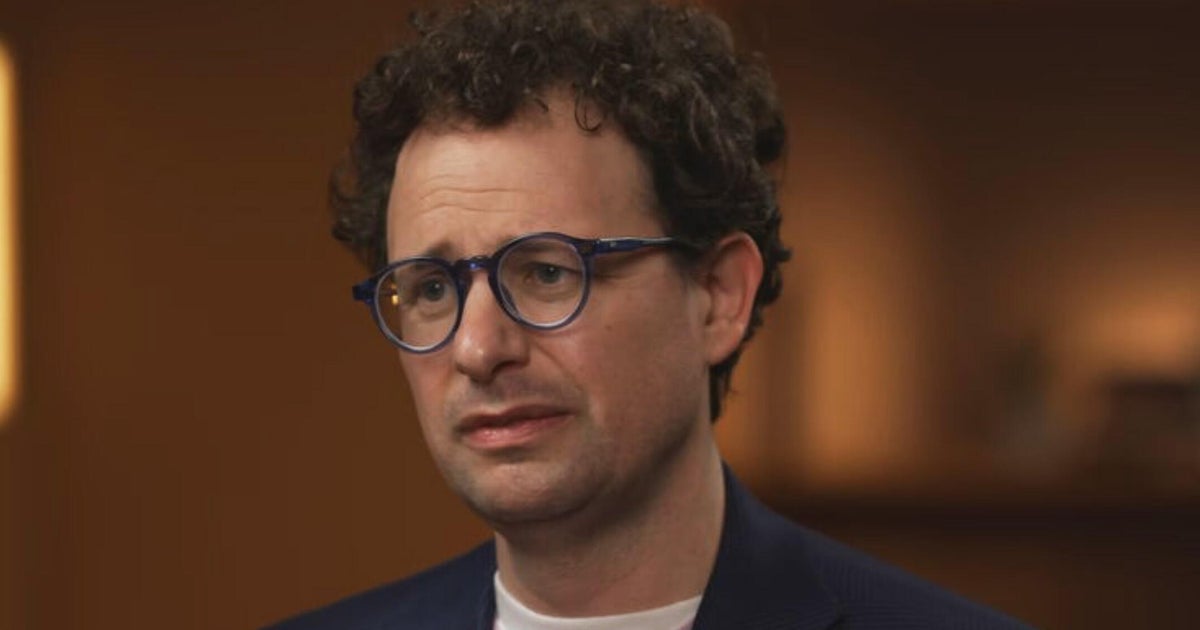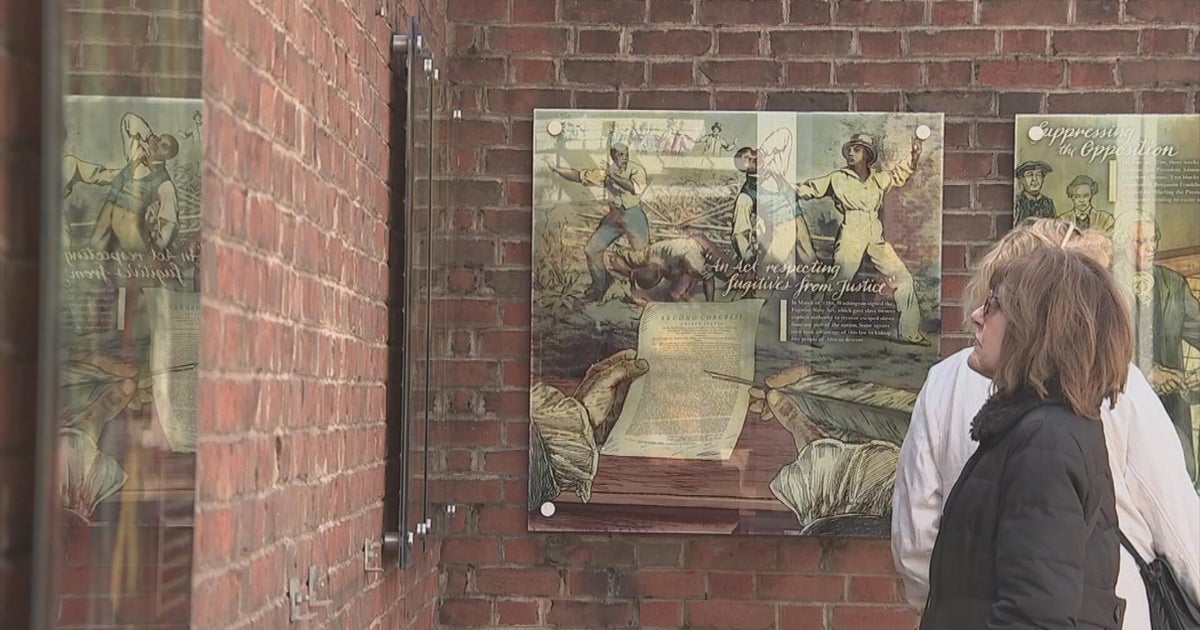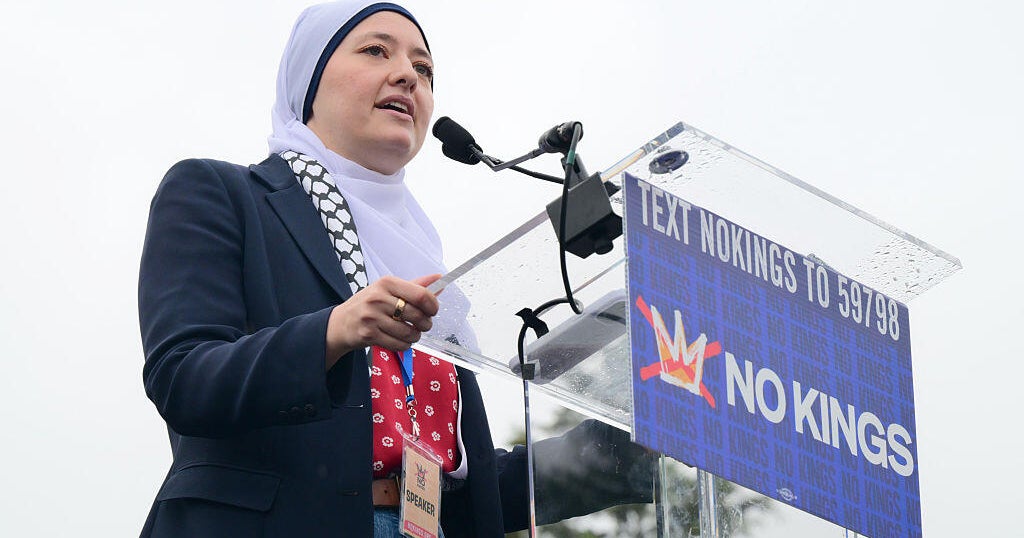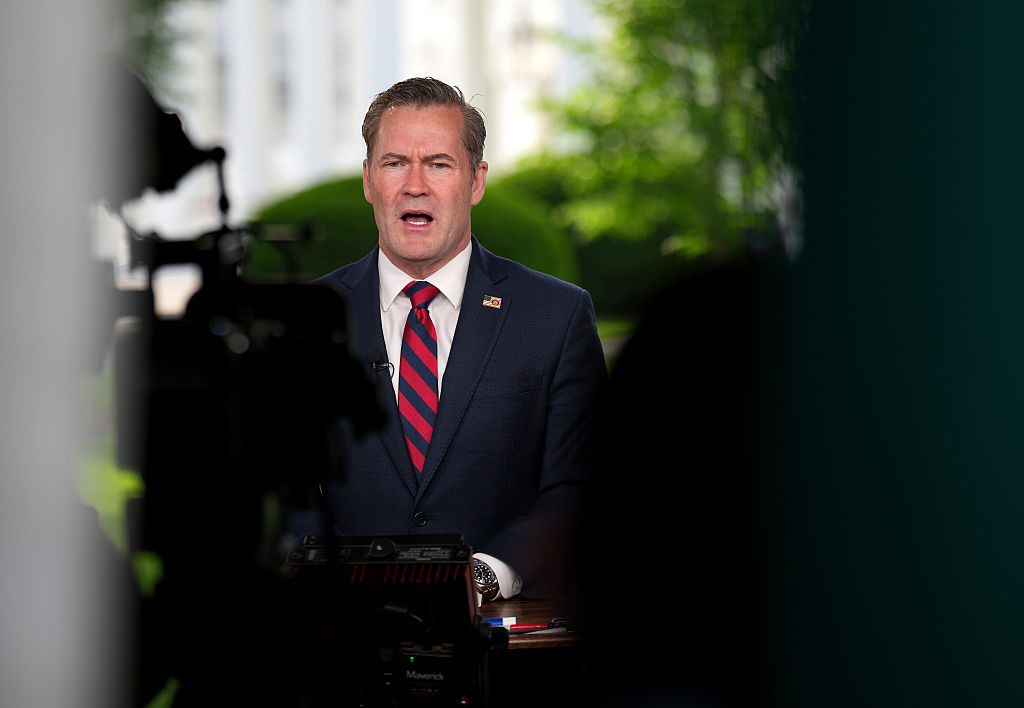Transcript: Rep. Michael Waltz on "Face the Nation with Margaret Brennan," Dec. 15, 2024
The following is a transcript of an interview with Rep. Michael Waltz, Republican of Florida, Trump's pick for national security adviser, on "Face the Nation with Margaret Brennan" that aired on Dec. 15, 2024.
MARGARET BRENNAN: We begin with Congressman Mike Waltz of Florida, who is the incoming White House National Security Adviser. Good morning to you.
REP. MIKE WALTZ (R-FL): Morning. Margaret. Tough day for Army, but great day for America.
MARGARET BRENNAN: Indeed. Well as a Green Beret, I know you had a reason to be cheering there for Army, Sir. I want to ask you a number of topics, but before I go overseas, you sit on the House Intelligence Committee. You also, because of your new role, are in contact with President Biden's National Security Adviser, Jake Sullivan. Do you think the public should be concerned about these reported drones all over the East Coast? And have you the need for more authority to deal with them?
REP. MIKE WALTZ: Well, I think what the drone issue points out are kind of gaps in our agencies, gaps in our authorities between the Department of Homeland Security, local law enforcement, the Defense Department. And I think Americans are finding it hard to believe we can't figure out where these are coming from. And I can tell you, from the Defense Department standpoint, you know, they're focused on bombers and cruise missiles, and- and it's- it's pointing to gaps in our capabilities and in our ability to clamp down on what's going on here. And we need to get to the bottom of it, and I think the Biden administration is- is working to do that.
MARGARET BRENNAN: But at this point, given the intelligence you've seen, is there any reason for the public to be worried?
REP. MIKE WALTZ: Well, look, when you have sensitive sites like Picatinny Arsenal, you have, of course, President Trump's residence at Bedminster, and you have other no-fly areas, those need to be enforced. We need to know who's behind it. But right now, I think law enforcement seems to be- the Department of Homeland Security and the Defense Department are kind of all doing this and pointing at each other. So when we come in, you know, how do we enforce these low level, long loitering, could-be-dangerous drones? And one thing for people to appreciate, you know, they're evolving so rapidly, it's not necessarily somebody that's just on the other end flying it. They could be following pre-positioned GPS coordinates. They could be coming from offshore. And we need to take a hard look at our homeland defenses. President Trump has talked about an Iron Dome for America. That needs to include drones as well, not just adversarial actions like hypersonic missiles. We need to have an all of the above protection of U.S. airspace.
MARGARET BRENNAN: Understood. Let- let me ask you about China. The President Elect said a few things in the past week about China, and he said his team has been "talking and discussing," as he put it, with China's President Xi Jinping. CBS was the first to report that an invitation was extended to the inauguration, though we do not expect Xi to come. Was that the extent of the back and forth? Do the two leaders intend to speak by phone?
REP. MIKE WALTZ: Well, Margaret, it's been amazing. I mean, the entire world is reaching out to the president. In fact, it's been a little overwhelming, the outreach, not only to speak with him, to congratulate him, but to even come to the inauguration themselves. So the outreach has been tremendous. President Trump is taking all calls, as you know. He believes in having a relationship with allies and adversaries at that kind of head of state level. And those conversations- those conversations are ongoing, but they are, really, nothing beyond congratulatory and niceties. We are in communication with the current administration. We don't agree on all things, but as I've said before, none of our adversaries should think this is a moment to take advantage of this transition. We don't agree with all things, but we are in full coordination with the current administration.
MARGARET BRENNAN: Well, China, you said there should be consequences because of their massive and pervasive hack of eight U.S. telecom companies, which has breached the metadata of potentially millions of Americans. Senator Marco Rubio said it was egregious, dangerous, and a vulnerability that no one anticipated. You're going to be working together. What do you plan for the consequences to be?
REP. MIKE WALTZ I think Senator Rubio, and hopefully future Secretary of State Rubio, is absolutely right. We are- we have been, over the years, trying to play better and better defense when it comes to cyber. We need to start going on offense and start imposing, I think, higher costs and consequences to private actors and nation state actors that continue to steal our data, that continue to spy on us, and that even worse, with the Volt Typhoon penetration, that are literally putting cyber time bombs on our infrastructure, our water systems, our grids, even our ports.That is wholly unacceptable, and I think we need to take a much stronger stance. Senator Rubio is right. President Trump has indicated that as well. We need to start changing behaviors on the other side, rather than just constantly having this kind of escalation of their offense and our defense. The Colonial Pipeline hack was another key point. And then finally, we've got a tremendous private sector with a lot of capability. That relationship between public and private, with our tech industry, they could be doing a lot of good and helping—
MARGARET BRENNAN: So is this sanctions?
REP. MIKE WALTZ: —us defend, but also making our adversaries vulnerable.
MARGARET BRENNAN: Is it sanctions day one from the Trump administration?
REP. MIKE WALTZ: Well, I'm not going to get ahead of everything that we're doing day one, but taking a different approach to cyber, looking at our doctrine, and starting to impose costs on the other side to get them to knock this off, is something we'll be taking a look at, I think.
MARGARET BRENNAN: You were at Mar a Lago this past week when Hungary's Prime Minister, Viktor Orbán, met with Mr. Trump and Elon Musk and yourself. He then announced that he had spoken to Vladimir Putin. Orbán seems to be floating a Christmas ceasefire and a prisoner swap. Is he carrying with him some kind of message from Donald Trump?
REP. MIKE WALTZ: Well, Orbán has regular engagement with the Russians, and he clearly has a good relationship with President Trump, and I would hope the entire world would want to see some type of cessation to the slaughter that is happening in eastern Ukraine. I mean, Margaret, people need to understand—
(BEGIN CROSSTALK)
MARGARET BRENNAN: Did Mr. Trump ask him to do that?
REP. MIKE WALTZ: This is World War I style-
(END CROSSTALK)
REP. MIKE WALTZ: This is World War I style warfare. It is a meat grinder of human beings. President Trump's been very concerned about the carnage that's ongoing. And where is this all going?
MARGARET BRENNAN: Right.
REP. MIKE WALTZ: We need to stop the fighting. And, you know, look, if that is some type of ceasefire as a first step, again, we'll- we'll take a hard look at what that means. But until January 20, we are also in coordination with this current administration.
MARGARET BRENNAN: Okay, so no message was sent through Orbán to Putin by Trump. Is that- that's what I understand you saying there.
REP. MIKE WALTZ: Oh, I'm not going to- yeah, I'm not going to get into specifics of back and forths. But, one is talking, of course, we're going to continue to talk, and the- President Trump's made it clear he wants this war to stop.
MARGARET BRENNAN: Does the Trump team plan to limit how Ukraine can use U.S. weapons or targeting assistance when you take office?
REP. MIKE WALTZ: Well, President Trump just said in the interview that, you know, a blank check, in his interview with Time magazine, I believe, you know, a blank check isn't- you know, just isn't a strategy. This just, kind of, forever war that we seem to be backing into. What does success look like in line with our interests? How do we end the war? Who's at the table? How do we drive, you know, all sides to the table, and what's the framework for- for an agreement? Those are things that we're thinking through with his fantastic team that he's assembling.
MARGARET BRENNAN: Was that discussed in that 45 minute meeting that Mr. Trump had with Mr. Zelenskyy in Paris last week? And do you support putting NATO member states as peacekeepers in Ukraine?
REP. MIKE WALTZ: Well, you know what's been so interesting, Margaret, is, just since the election, everyone coming to us, our European allies, President Zelenskyy in that meeting, and others, have shifted to how to- that framework I just talked about. How do we end this conflict? How do we do it in a way that restores stability, stops the carnage, and hopefully makes this a permanent end, not just- not just a pause? Those are all things that we're thinking through. And in terms of the question you just asked, the NATO Secretary General came here to Mar a Lago, he's talking about the Europeans taking a bigger role in- whether that's on the ground or otherwise, after this conflict is over, and that's exactly what President Trump has been asking for.
MARGARET BRENNAN: I have to quickly ask you about the Middle East. During the last Trump administration, Donald Trump pulled some U.S. troops out of Syria. Does he intend to keep the 900 U.S. troops there?
REP. MIKE WALTZ: Look, our number one interest is keeping a lid on ISIS. We cannot have an explosion of ISIS back into a caliphate that threatens Iraq, threatens Jordan, threatens Turkey and Europe, inspires attacks in the United States, like we saw in 2014. President Trump cleaned it up then with his team. 1000s of ISIS fighters are in prison camps. We're in consultation with the Israelis as well. They're importantly taking down Assad's chemical stockpiles, as well as other things we don't want falling into the hands of anybody. And you know, the other piece there that he asked for in the first term, and that we need to see is, again, Europe, who was hit so badly by ISIS attacks, taking a greater role in keeping ISIS contained. So those are all conversations that we're having, again, in consultation with the current administration, and we'll see moving forward.
MARGARET BRENNAN: Congressman Mike Waltz, thank you for joining us today.



